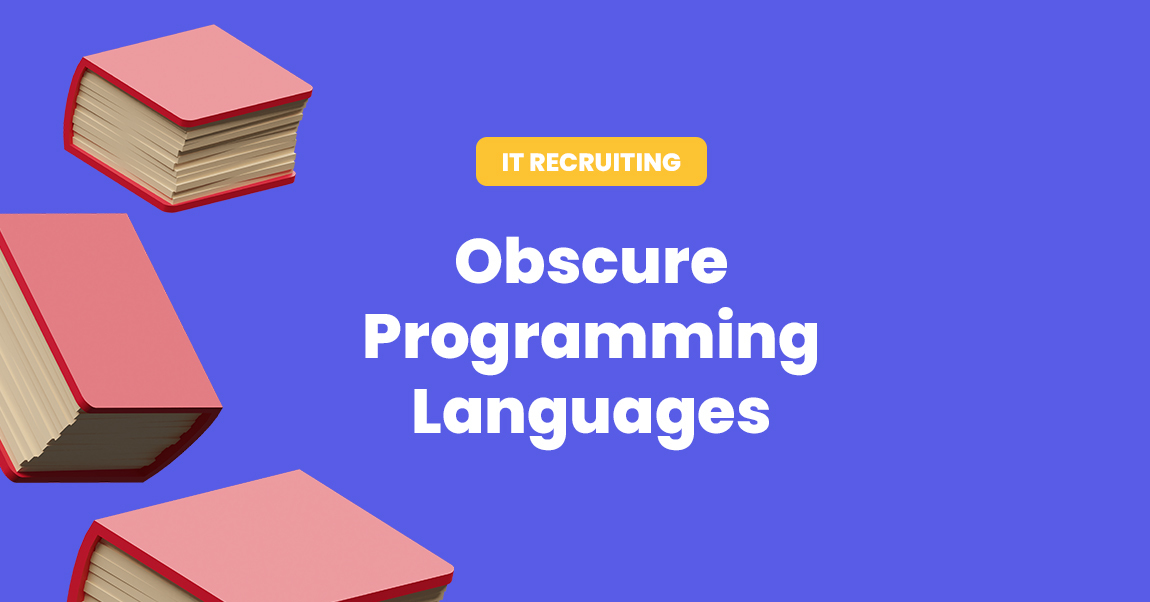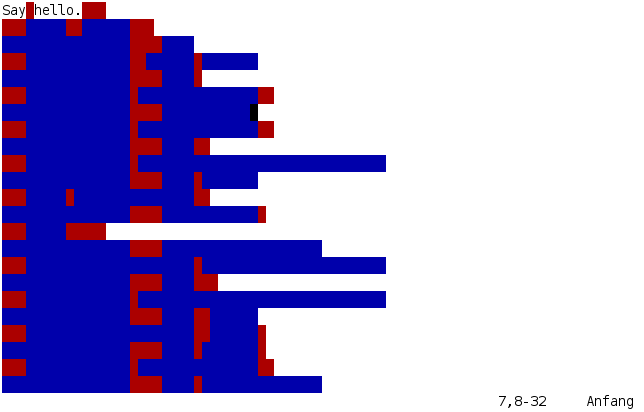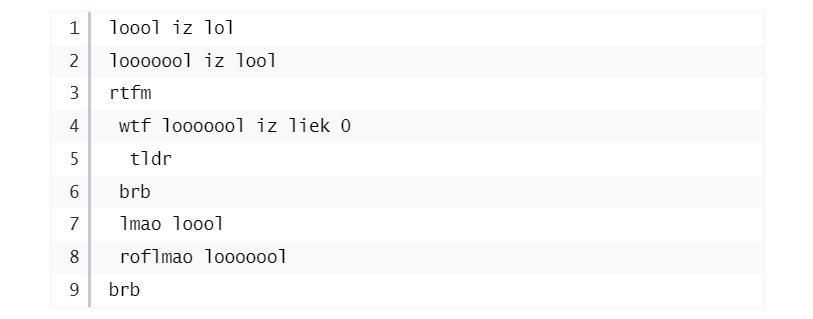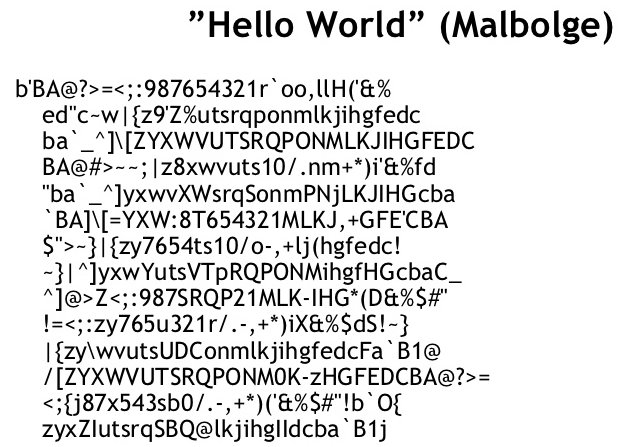IT Recruiting
Obscure Programming Languages

The meaning of the adjective obscure can be defined as unclear or uncertain. The verb, however, implies synonyms like keeping from being seen, hidden, concealed, or covered. That is exactly what obscure programming languages stand for. They represent a series of hidden meanings and purposes behind the lines of code.
Esoteric Programming Languages
Esoteric programming languages (or simply – esolang) are a kind of programming languages which were designed to remove or replace standard language features while still maintaining a Turing-complete language. They often aim to test the boundaries of programming language design. Some esolangs exist as a proof of concept, or as software art. Many are developed simply for fun.
Developers rarely intend to use these languages for mainstream programming, although some esoteric features enable them to be popular among hobbyists and hackers.
Try saying “Obfuscation” three times fast!
The general meaning of the term Obfuscation implies deliberately making something difficult to understand. As for programming, this practice might be used to protect the code (as intellectual property) and fight off potential attackers. There is a tool called the obfuscator, which can convert a straight-forward code into a different program. This new program basically has the same usage, but it’s much more difficult to read or alter. The computer system is able to compile code even when this is obfuscated. Interpretation performed by people, on the other hand, wouldn’t stand a chance.
Obfuscation is an unavoidable part of esoteric programming. Readability is a concept unknown to esolang practitioners. It can conceal the real purpose of the program, and leave any human being baffled, staring at the screen with a tiny wrinkle forming on their forehead.

The most obscure programming languages
Obscure programming languages are known for their weirdness and minimalism. But, there is something undeniably appealing to bizarre programming. So, let’s see how creative or how over the top can programming get.
Chef
This prints hello world, while being tastier than Hello World Souffle.
Are you feeling hungry? We present to you Chef, a stack-based language that purposely looks like a cooking recipe. The creator of this odd programming language, David Morgan-Mar, said that Chef should generate valid output while remaining delicious. Theoretically, this idea sounds brilliant. In reality, it’s much more.
If we choose not to defy all articles, courses, and tutorials for beginners, we can give Chef a try by learning how to say “Hello world!”. Can we? If we fail in understanding Chef, it least we can obtain great lunch ideas.

LOLCODE
Do you remember LOLcats? If you do, you most likely blasted Fall out boy loudly while scrolling through those memes. Anyway, for those of you who missed out on the mid-00s’ internet sensations and perpetual idiosyncrasy, here’s all you need to know. The internet was captivated by pictures of cats and kittens, followed by funny comments and intentional grammar mistakes.
LOLCODE is an homage to the era when LOLcats were hilarious. However, this programming language takes a slightly darker turn by mimicking the changed world. In this new world, LOLcats would be the ones behind keyboards, running the programming game, and typing the most unusual phrases.
“HAI WORLD!” & Thanks for the memories, Adam Lindsay!

Whitespace
To paraphrase Bruce Willis’s character in “Sin City” – There’s weird, and there’s weird, and then there’s this. Yes, there is a programming language designed in such a manner to ignore everything but the blank spaces completely. Edwin Brady and Chris Morris developed this language, and it was released on April 1st, 2003. The date makes perfect sense, of course.
The Whitespace stands as an opposition to almost all other programming languages since its interpreter ignores any non-whitespace characters.
However, it’s not an invisible code. It does have a physical appearance and some regularities to it. Take a peek.

OMGROFL
While there is a Shakespeare inspired programming language, let’s stick to the trashy 00s’ trends for a little more. The complexity of expression has been continuously reduced. We all have too much information to share, and not as much time on our hands as we hoped for.
Omgrofl is an esoteric programming language that was created in 2006 by Juraj Borza, esolang aficionado from Slovakia. As we can see, the name represents the merge of the two slang words – OMG and ROFL. Its programs consist of statements written on separate lines. Some statements contain conditions or expressions (variables or numbers). Speaking of variables – they must represent a form of the slang word lol, like: lol, lool, loool, looool.
So much for simplified communication. This programming language looks like the revenge of proper speech against millennials.

Malbolge
The name says it all. Malbolge is a programming language named after one of the circles of hell, according to Dante. If medieval going Renesanse comprehension of Inferno doesn’t make you want to learn more about this obscure language, you need to question your curiosity. To describe it more accurately – the term Malbolge stands for “evil ditches” (there are ten of them), and it represents the eighth circle in Dante’s masterpiece.
Ben Olmstead developed this public domain esolang in 1998. Can you grasp what this programming language looks like and what’s its purpose? Undoubtedly, Malbolge has one job – to make writing programs as difficult as possible.
Many reasons make Malebolge nearly impossible to use, and one of them is self-altering code. Malbolge’s features classify this esoteric language more abstract and puzzling than Brainfuck. Seriously, though. If Virgil could see how they spell Hello World, he’d get rid of Dante before reaching Purgatory.

The grand finale
If you’ve reached this paragraph, you might as well drop us a line and share your experience with weird, obscure, and unusual programming languages and practices. Which esoteric language from our list do you prefer? Are you more of a 00s’ nostalgia type of person, or does 14th century Italy sound more like a trip to the past you’d take?
Obscure programming might be difficult to maneuver, but it’s not that hard to learn to appreciate it. These programming languages overcome so many limitations, which makes them astounding and unique.